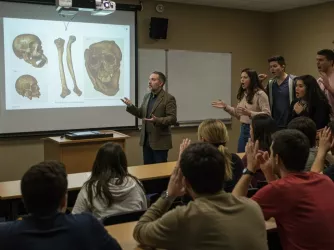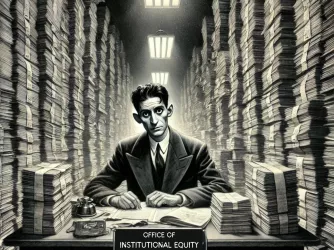Table of Contents
Former Xavier Student Athlete Files Suit Alleging Unfair Expulsion
Former Xavier University (Cincinnati) student athlete Dez Wells filed a complaint (PDF) Tuesday in federal court alleging that Xavier failed to follow its own procedures in a sexual assault hearing against Wells and that the university’s public statement about the case was defamatory.
In July 2012, a fellow Xavier student accused Wells of raping her; Wells stated that the sexual activity was consensual. That August, Wells was expelled from Xavier after a hearing by the University Conduct Board (UCB), despite the fact that both a county grand jury and county prosecutor Joseph Deters declined to indict Wells. (Deters, in fact, even advocated for Wells himself, asking Xavier to reconsider the case.)
According to Wells’ federal complaint, the policies in Xavier’s Student Handbook require members of the UCB—which adjudicates allegations of sexual assault and rape—“to be trained and experienced in adjudicating such matters and to be free of prejudice or bias.” The Handbook specifies several procedural requirements meant to “preserve fundamental fairness,” including a requirement that the UCB use the “preponderance of the evidence” standard of proof in order to determine whether a student is responsible for the alleged offense.
Wells contends that the Handbook constitutes an enforceable contract and that Xavier breached that contract by subjecting him to a process that was, as Deters characterized it, “fundamentally unfair.” In what is an egregious misapplication of the federal Office for Civil Rights’ (OCR’s) requirement of the preponderance of evidence standard, if true, the UCB allegedly placed the burden of proof on Wells to show that the complainant consented to sex.
Wells also alleges the UCB refused to accept evidence of his innocence and did not allow testimony from professionals trained to assess evidence of sexual assault. According to Wells’ complaint, even though a medical examination of the accuser resulted in laboratory analysts concluding that “no sexual assault had occurred,” Xavier’s Title IX coordinator stated during the hearing that Xavier had not yet received that analysis.
According to Wells, the UCB further impeded his ability to defend himself by allowing character witnesses only when they supported his accuser, in violation of university policies prohibiting any character witnesses. The complaint also alleges that “[the accuser] has recanted her story and admits that the sex with Wells was consensual.”
Wells’ claims for relief include damages for breach of contract, intentional infliction of emotional distress, and defamation. Wells also seeks to have Xavier vacate the UCB’s decision. His claims for defamation relate to the university’s public statement that Wells was found responsible for a serious violation of the Code of Student Conduct, thus indicating with “reckless disregard of [the statement’s] truth” that he had in fact committed the alleged offense.
As FIRE explains in our Guide to Due Process and Fair Procedure on Campus (PDF), private universities must follow their stated procedures for disciplinary hearings. Universities have a moral duty to fairly adjudicate complaints when they involve serious offenses like sexual misconduct, given the high stakes for all parties. If Wells’ description of the way the UCB handled his case is accurate, Xavier failed to afford him a fair opportunity to defend himself, and it should be held accountable for breaking the promises set forth in the Handbook.
Xavier’s handling of sexual misconduct cases has been subject to criticism before. In August 2012, the university entered into an agreement with OCR following complaints that Xavier allowed students who were found responsible for sexual assaults to remain on campus. Xavier’s agreement with OCR, in turn, was criticized for using language that presumes the guilt of the accused student and submitting to OCR’s instructions to grant accusers the right to appeal a not-guilty finding, among other things.
FIRE will follow Wells’ case closely.
Recent Articles
FIRE’s award-winning Newsdesk covers the free speech news you need to stay informed.

UPDATE: Another federal appeals court backs academic free speech for public employees

Feds to Columbia: ‘You want $400 million in contracts back? Do this (or else)’

A picture is worth a thousand words — unless a college district bans it
